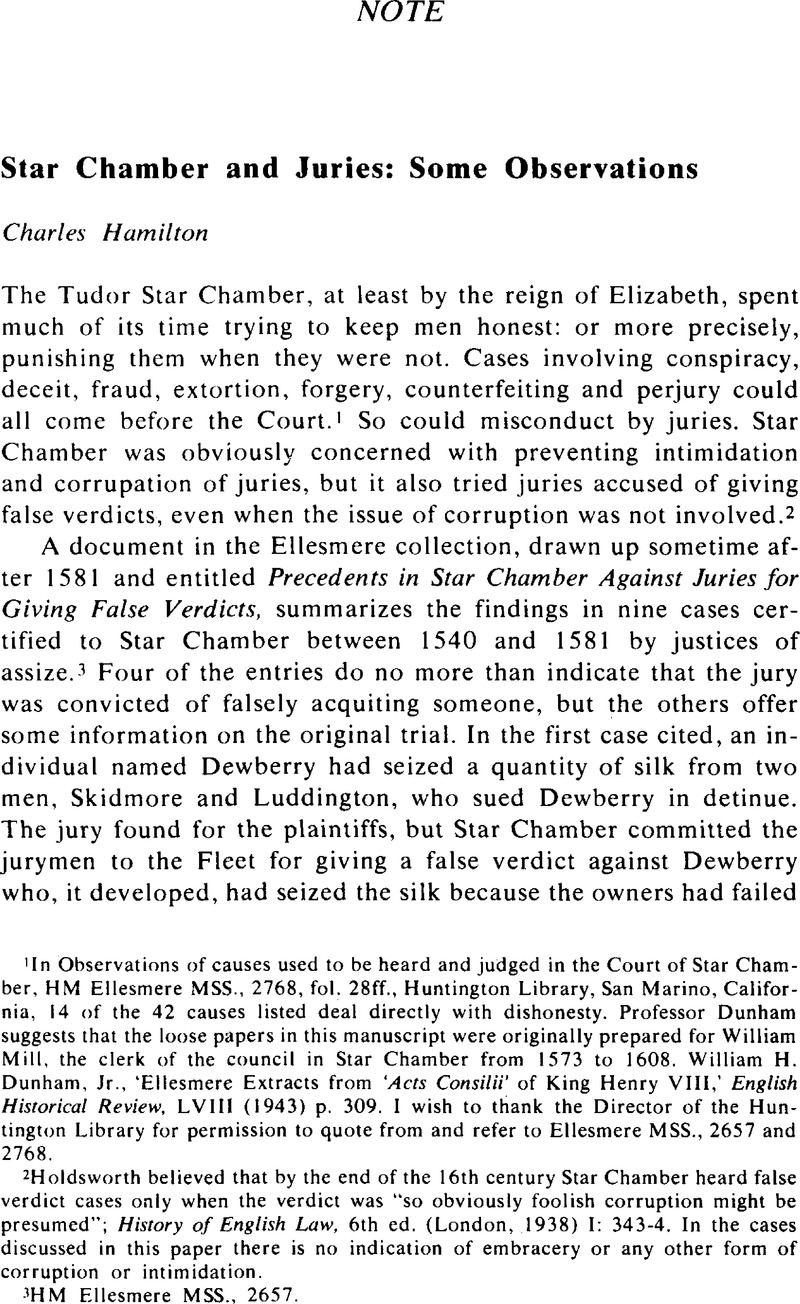Article contents
Star Chamber and Juries: Some Observations
Published online by Cambridge University Press: 11 July 2014
Abstract

Information
- Type
- Note
- Information
- Copyright
- Copyright © North American Conference on British Studies 1973
References
1 In Observations of causes used to be heard and judged in the Court of Star Chamber, HM Ellesmere MSS., 2768, fol. 28ff., Huntington Library, San Marino, California, 14 of the 42 causes listed deal directly with dishonesty. Professor Dunham suggests that the loose papers in this manuscript were originally prepared for William Mill, the clerk of the council in Star Chamber from 1573 to 1608. Dunham, William H. Jr., ‘Ellesmere Extracts from ‘Acts Consilii’ of King Henry VIII,’ English Historical Review, LVIII (1943) p. 309CrossRefGoogle Scholar. I wish to thank the Director of the Huntington Library for permission to quote from and refer to Ellesmere MSS., 2657 and 2768.
2 Holdsworth believed that by the end of the 16th century Star Chamber heard false verdict cases only when the verdict was “so obviously foolish corruption might be presumed”; History of English Law, 6th ed. (London, 1938) I: 343–4Google Scholar. In the cases discussed in this paper there is no indication of embracery or any other form of corruption or intimidation.
3 HM Ellesmere MSS., 2657.
4 A slightly fuller report of this case is in HM Ellesmere MSS., 2768.
5 HM Ellesmere MSS., 2768, fols. 45-49. This long summary follows almost directly the report of the conviction of the jury for failing to find Roger Life guilty of manslaughter and is in the same hand (see note 4). A similar hand (which may have been Mill's) made marginal notes on Observation of causes…(see note 1).
6 HM Ellesmere MSS., 2768, fol. 21.
7 Ibid., fol. 24.
8 Ibid., fol. 21.
9 Ibid., fol. 21.
10 Ibid., fol. 44.
11 Fines were apparently reviewed twice a year and “so qualified or stand as shall be thought good…;” Ibid., fol. 58.
12 Star Chamber Stories (London, 1958), p. 113.Google Scholar
13 One can only wonder at the audacity of a jury which in the first year of Edward VI's reign was committed to the Fleet by Star Chamber “upon the declaration of the Justices of Assize that they gave a false verdict and for lewd words by them spoken at the above, saying the said Justices were very shifty with them.” HM Ellesmere MSS., 2768, fol. 64.
- 1
- Cited by

